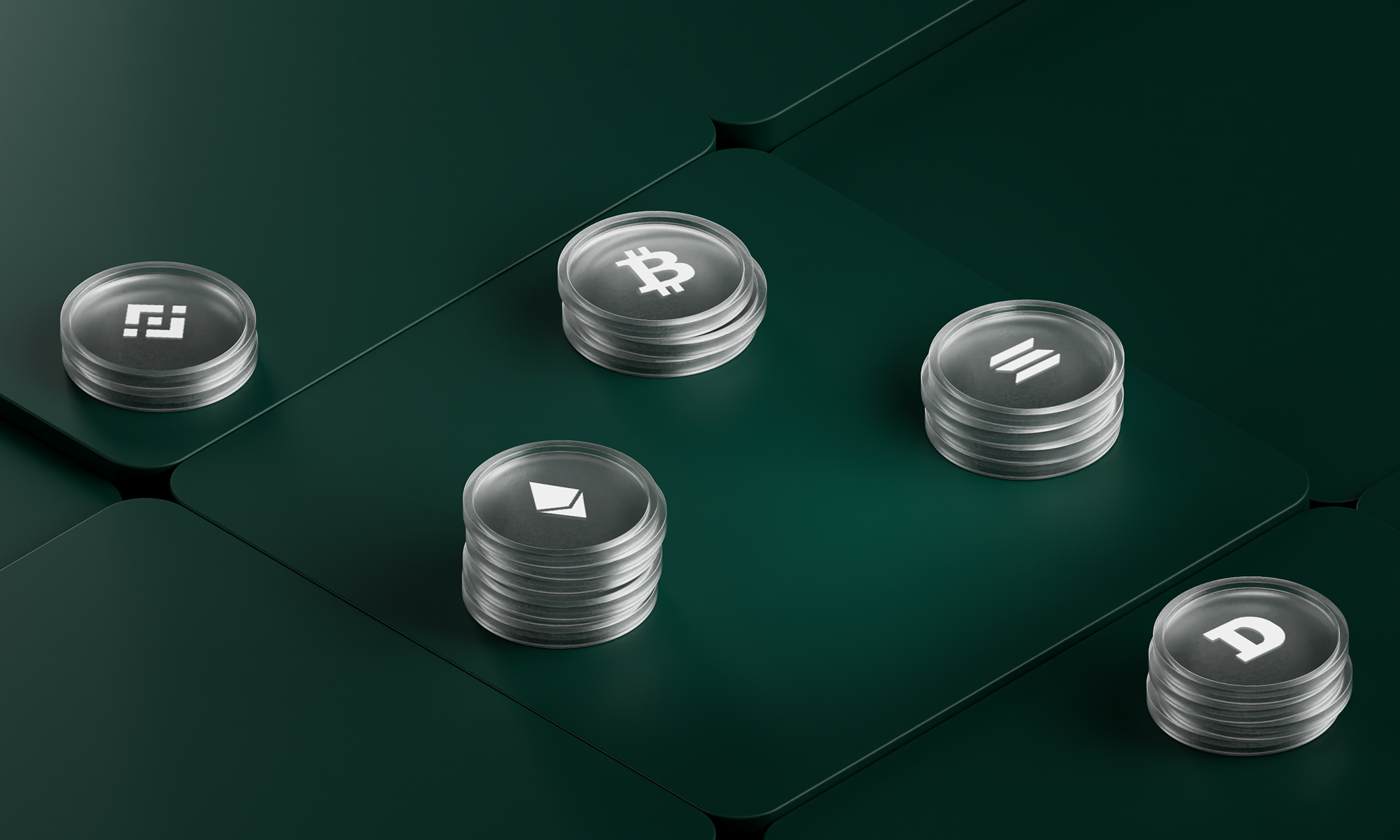Use cases and prospects: What is the significance of tokens?
Tokens have a transformative significance for the digital economic system, as they redefine how we think about ownership, value transfer and investment. The technology enables us to digitise ownership rights, allowing secure and efficient value transfers across borders without the need for intermediaries.
In the world of cryptocurrencies, tokens form a bridge between the traditional financial system and the emerging digital economy. They not only offer new investment opportunities, but also form the basis for innovative applications in areas like the Internet of Things (IoT) or supply chain management. Some examples? Tokenised real estate shares drastically lower the entry barrier for private investors. Companies, on the other hand, can use token-based technology to make supply chains transparent or reduce risk by issuing security tokens.
The introduction of tokens has also led to the emergence of new communities and economic models, such as decentralised autonomous organisations (DAOs), which are based on the collective ownership and management of tokens. Tokens are therefore not just a technological construct, but also a social and economic phenomenon, enabling new forms of collaboration and value exchange.
Cryptocurrencies, tokens, coins – the differences
Tokens and coins are both types of digital crypto assets that exist on a blockchain, but with one essential difference: Coins have their own blockchain and primarily function as digital currency and a medium of exchange. Tokens, by definition, are built on existing blockchains and often represent specific assets or usage rights within a project – often with additional functions and use cases.
So, Bitcoins are not tokens but coins. Coins are native digital currencies that operate directly on their own blockchain – like Bitcoin or Litecoin – and mainly serve as a means of payment. In contrast, the term token refers to digital assets that are created and used on an existing blockchain to represent a wide range of assets and rights, fundamentally distinguishing them from coins.
In fact, the term cryptocurrency often causes confusion. While all coins are considered cryptocurrencies because they are designed as a means of payment, tokens are not always intended to function as currency, even though they can be used as such. Therefore, not all cryptocurrencies are necessarily coins. A coin specifically refers to digital money based on its own blockchain, while the term cryptocurrency includes both coins and tokens based on blockchain technology.
How long are tokens valid?
There is no universal explanation for the validity period of tokens. After all, the validity of a token depends on the type of token you’re dealing with and its intended purpose. Some tokenised financial instruments, such as digital securities or security tokens, are subject to fixed terms. What does that mean for these tokens? Their validity ends upon reaching a specific date, redemption or fulfilment of contractually defined conditions.
It's a different story with utility tokens or NFTs, for example. These often remain valid indefinitely – as long as the blockchain and the project continue to exist. However, keep in mind that this doesn’t guarantee lasting value. Even though they’re considered crypto assets, tokens lose their function and value if the project is discontinued, active development stops or the community loses interest.
Conclusion: Token – one term, many use cases
The universe of tokens is a reflection of the innovative power of blockchain technology, which has grown far beyond the original idea of digital currencies. Tokens have established themselves as versatile digital tools that can be used for a wide range of applications – from representing a piece of art as an NFT, to reflecting shares in a company via security tokens, to enabling decentralised governance through governance tokens.
The significance of tokens extends to almost every aspect of the digital world and is revolutionising traditional concepts of ownership, investment and participation. They allow us to transfer, share and store value in new forms. With every new application built on blockchain technology, the potential of tokens expands, securing their central role in the future of the digital economy.
The world of tokens is multi-layered and full of opportunities. It opens doors for investors, businesses, artists and tech enthusiasts, creating space for discovery and innovation. In this dynamic space, informed knowledge is valuable, as it helps unlock the full potential of digital progress and take an active role in shaping it.
Frequently asked questions about tokens
Here we answer the most frequently asked questions about tokens and their importance to the crypto world.
How can you buy tokens?
Tokens can be purchased via various crypto brokers or exchanges. After registering and verifying your identity on the respective platform, you can deposit fiat money and use it to buy tokens. There are also specialised platforms and DApps that enable the direct purchase of specific token types, such as NFTs.
Are Bitcoins tokens?
Bitcoins are not tokens, but coins. As the first and most well-known cryptocurrency, Bitcoin has its own blockchain on which transactions are recorded directly. In contrast, tokens are digital units built on top of an existing blockchain and offer a wide range of additional functions and use cases.
If you’re interested in the world of cryptocurrencies, our in-depth articles provide exactly the right information to deepen your knowledge. They’ll take you further into the fascinating world of crypto coins and tokens.
